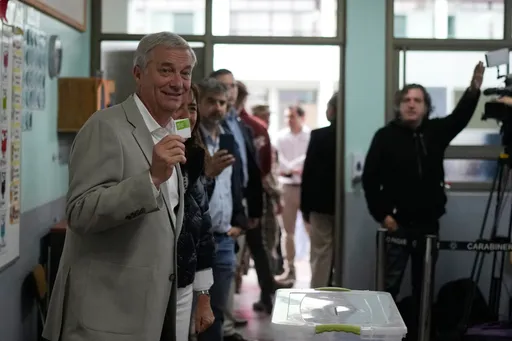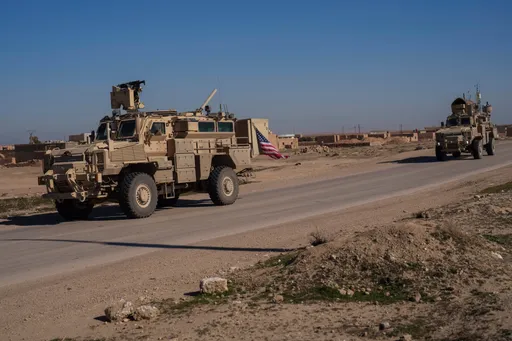On August 7, 1998 huge back-to-back bomb blasts rocked the US embassies in Nairobi and Dar es Salaam, killing over 250 people, wounding more than 5,000 and thrusting Al Qaeda onto the world stage.
The blasts marked the first major attacks by Osama bin Laden's network in its war against the United States, which culminated three years later in the September 11, 2001 plane atrocities on New York and Washington DC.
David Lowe an expert on terrorism spoke to TRT World about the impact of the attacks
On the 20th anniversary of the East Africa attacks, here is a look back at what happened.
Twin bombings
At around 10:30am on August 7, 1998, a Friday, a huge car bomb exploded outside the US embassy in central Nairobi, Kenya, shattering large parts of the building and the adjacent 25-storey Cooperative House Bank, which spewed glass and concrete. Blood-soaked people fled in panic.
The bomb "blew out virtually every window in buildings within a 300-metre (yard) radius, raining razor-like shards on helpless pedestrians," AFP reported.
Five minutes later, a booby-trapped tanker truck exploded outside the US embassy in Dar es Salaam, Tanzania.
"The place looks like a war zone area. The houses have been blown to pieces, the roofs are shattered," AFP quoted a witness telling CNN in the Tanzanian capital.
US Marines rush to both scenes.
The Nairobi attack was the most devastating. In the chaos and confusion, the numbers of dead and wounded were difficult to ascertain.
Many victims were only found in the following days, rescue workers tunnelling through the rubble with cranes and bulldozers.
The death toll in Nairobi was eventually established at 213 with around 5,000 wounded. Most were local people, passers-by or workers in nearby buildings. Forty-four people including 12 Americans were killed in the embassy itself.
In Tanzania 11 people were killed and 70 wounded, all passers-by.
Worldwide alert
The US president, Bill Clinton, was awakened just before dawn by his national security adviser with the news. At a White House event later he said the attacks were "abhorrent, they're inhuman."
"We will use all the means at our disposal to bring those responsible to justice, no matter what or how long it takes," he said.
US embassies around the world were put on the highest alert. The US State Department warned against travel to Kenya and Tanzania and issued a general travel advisory to Americans abroad.
The Federal Bureau of Investigation (FBI) dispatched investigators and explosives experts.
Bin Laden accused
"This appears to have been a very well-co-ordinated, very well-planned attack – clearly not the work of amateurs," National Security Council spokesman PJ Crowley said on August 8.
On the same day an unknown Islamic group called the Islamic Army for the Liberation of (Moslem) Holy Sites claimed responsibility.
However on August 20 Clinton accused Bin Laden, citing "convincing information from our intelligence community."
Three days later Britain said it had proof of Bin Laden's involvement.
The attacks were at the time the most deadly by Al Qaeda, which had hit the World Trade Center in New York in 1993, killing six, and Saudi Arabia twice, in 1995 and 1996, leaving around 26 dead, including US nationals, in total.
US strikes out
Hours after Clinton pointed the finger at Al Qaeda, US cruise missiles simultaneously hit alleged terrorist targets in Afghanistan, where Bin Laden was living, and in Sudan.
In Afghanistan the target was training camps; in Sudan it was a pharmaceutical plant believed at the time to produce an ingredient in lethal nerve gas.
Critics of the US actions said 50 people were killed in Afghanistan but there was no confirmation.
Britain backed the US strikes but many Muslim leaders were angered. The Arab League said the "Rambo-style" attacks were a threat to Middle East stability.
Thousands demonstrated against the US, including in Afghanistan, in Pakistan and in Sudan.
The United States eventually indicted more than 20 people for the bombings.
They include Bin Laden, charged in absentia. He was killed by US troops in Pakistan in 2011, after allegedly masterminding the 9/11 attacks on the United States.
In 2001 the US sentenced four Al Qaeda members to life without parole for the embassy attacks, with four others subsequently also jailed.
Survivors seeking compensation
On Tuesday, Kenyans and Tanzanians marked the 20th anniversary of the bombings, with hundreds of local survivors calling on the US government for compensation.
The US ambassador to Kenya, Robert Godec, said the extremists wanted to cause a rift between Kenyans and Americans but failed.
"They sought to divide us, to divide friends ... to undermine the values we hold dear, to destroy civilization itself and to replace it with a nightmare of oppression," Godec said.
In a separate statement, Secretary of State Mike Pompeo said that "our partnership with our African allies remains stronger than ever."
One survivor of the Nairobi attack said hundreds of Kenyans were still pursuing compensation from the US, while US citizens working in the embassy had been compensated.
Douglas Sidialo, spokesman with the Kenyan victims' association, was blinded in the attack.
"You have to ask, do they care about the dreams and aspirations of the survivors? The unity the ambassador is talking about is a fallacy," Sidialo said.
























